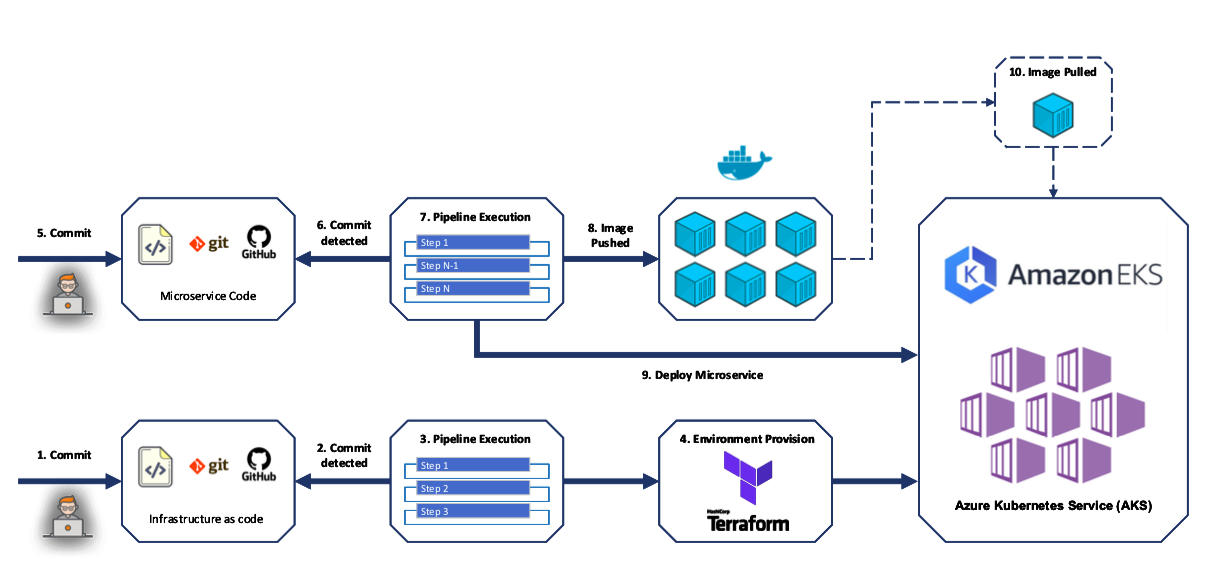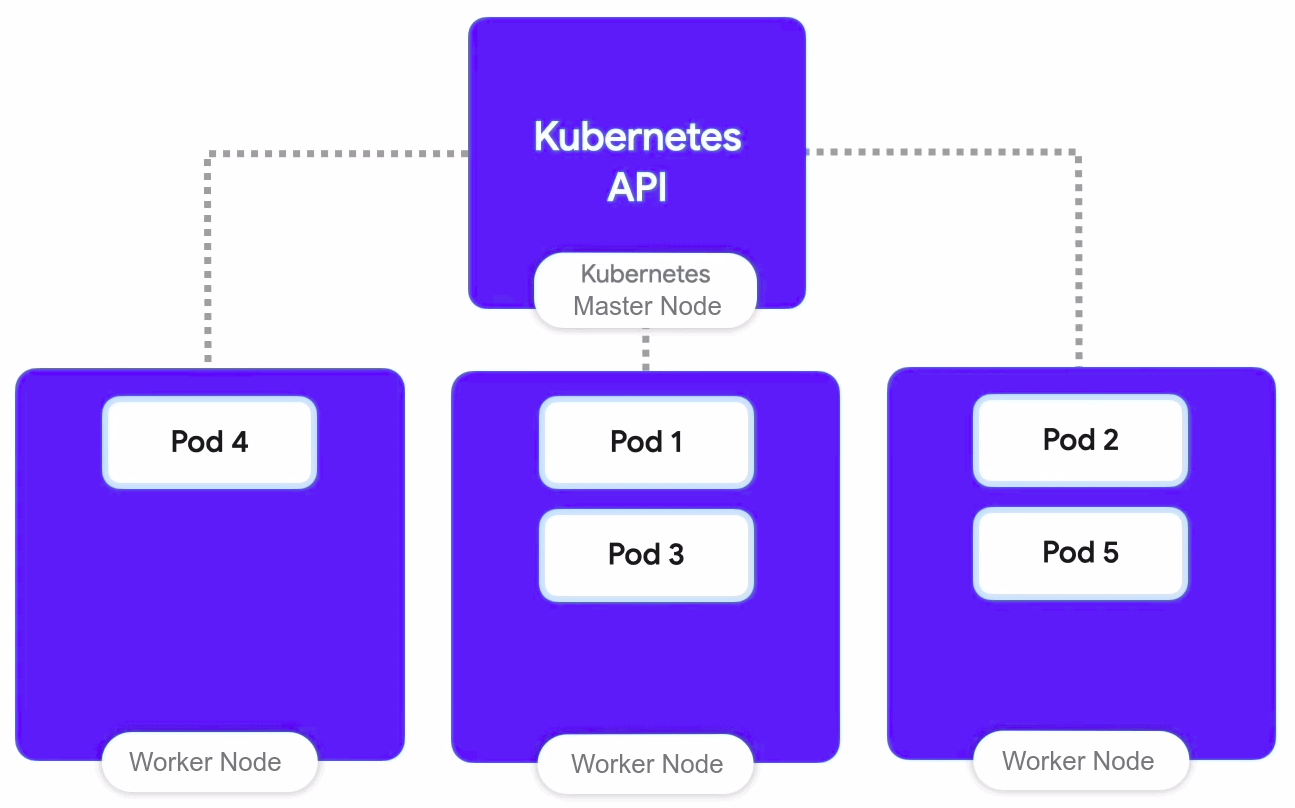
- #How do docker and kubernetes work together how to#
- #How do docker and kubernetes work together software#
“You can answer some old compute/mathematical problems such as the Infinite Monkey Theorem, where you can generate any text with random characters/numbers,” Lachhman says. And the possibilities continue from there. Similarly, if you want to field test latency, Lachhman notes that you can try running everything over your home WiFi setup instead of wired connectivity in an office. “Does adding more replicas impact application performance?” “Testing workloads you are unsure of scalability are great to place on your Raspberry Pi- powered Kubernetes cluster,” Lachhman says. Try testing workloads when you are unsure of scalability, for example. Lachhman likens the setup “to the art of the possible:” You can test for resiliency, performance, and scalability under various conditions, for example. What can a Raspberry Pi cluster be used for? Think testing and simulation, for startersīoth Lachhman and Raghu Kishore Vempati, director of technology, research, and innovation at Altran, point to the simulation and testing possibilities of running a Kubernetes cluster on a fleet of several or more Raspberry Pis. “When it comes to deciding what you do with your own little supercomputer with several or several dozen Raspberry Pis, the world is your oyster,” Lachhman says. It’s not just about getting your hands dirty with Kubernetes (and how a cluster runs across distributed hardware), though.

Whether you run a cluster of several or dozens of machines, though, the goal is the same: Kubernetes experimentation and learning. “You might want to dedicate a node to act as a load balancer if you start to get really large clusters or network heavy workloads you are placing on your set of Raspberry Pis,” Lachhman says.

Running a local Kubernetes cluster on cheap Raspberry Pi hardware is a great way to gain experience managing and developing on a true cloud technology giant.”īe sure to check out Collins’ step-by-step by guide to installing a Kubernetes cluster on three or more Raspberry Pi machines.įor the imaginative and ambitious, Lachhman notes that once you’re up-and-running, you could even start to scale your hardware by continuing to add new Raspberry Pis as additional worker nodes in your cluster.
#How do docker and kubernetes work together how to#
Indeed, this means you can build experience with cloud computing, hybrid cloud, and Kubernetes from home (or anywhere, really.) How to build a Kubernetes cluster with Raspberry Pi devicesĪs Red Hat SRE Chris Collins wrote recently over at our sibling site, : “Nothing says ‘cloud’ quite like Kubernetes, and nothing screams ‘cluster me!’ quite like Raspberry Pis. If you just had your laptop, you would have to run multiple VMs to achieve the same thing, which can tax your machine.” “Because Raspberry Pis come with connectivity that allows them to cluster together, you could create a Beowulf cluster representing several nodes at your disposal. “Each Raspberry Pi is effectively its own node with its own operating system,” Lachhman says. While a tool like Minikube is also great for learning and other purposes, it runs a single-node cluster on your laptop. In particular, Lachhman notes that a group of Raspberry Pi devices can help someone stretch their distributed systems wings, and be used to simulate the nodes (or machines) that host containerized workloads in a Kubernetes cluster. “Dabbling in items that could potentially roast or brick your expensive laptop can be tried on a Raspberry Pi device without worry, since they are relatively inexpensive.”Ī group of Raspberry Pi devices can help you stretch your distributed systems wings, and simulate the nodes that host containerized workloads in a Kubernetes cluster.
#How do docker and kubernetes work together software#
“Raspberry Pis can unlock a lot of knowledge and creativity around hardware, and the membrane of software to the hardware,” says Ravi Lachhman, evangelist at Harness.

So how do these technologies go together? The crux of their relationship is experimentation – and in particular low-cost experimentation, which means failure is just fine as someone travels their individual learning curve and develops experience. Raspberry Pi + Kubernetes = Easy experimentation But actually, the Raspberry Pi’s suitability for learning extends well beyond the classroom or home. (You probably won’t see Kubernetes become a go-to platform for teaching children computing principles, though.)Īt first blush, pairing these two technologies together – low-cost personal computing hardware and a powerful open source container orchestration platform – might seem unusual. In particular, it’s a top choice for container orchestration, meaning how teams automate deployments, scheduling, scaling, and other critical work involved in running containers. Kubernetes, meanwhile, has become synonymous with containerization. The Raspberry Pi’s suitability for learning extends well beyond the classroom or home.


 0 kommentar(er)
0 kommentar(er)
